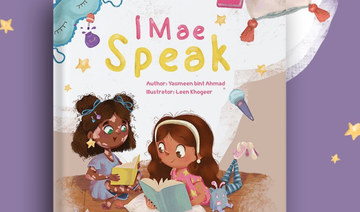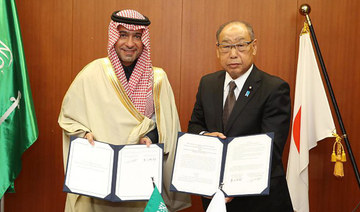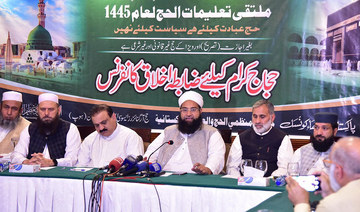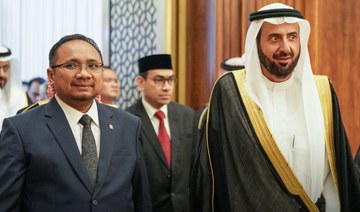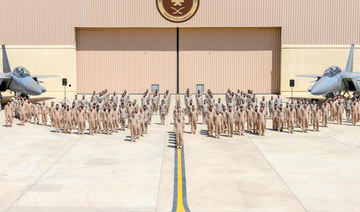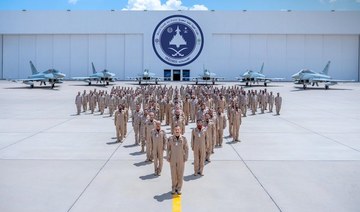DAMMAM: “Little Explorers,” an initiative by the Heritage Commission, has organzied an expedition of exploration and wonder at Nakheel Mall in Dammam for children.
The event, which runs until Nov. 27, is for children aged between 6-12 years old and is free of charge.
After registration, children are split into small groups and given a little notebook that serves as an exploration passport.
The adventure starts within a sand-tinted structure in the mall, and children are given 3D glasses. An expert instructs them to look at a map of Saudi Arabia on the wall, and the glasses help them visualize various spots within the Kingdom.
A few replicas of excavated artifacts found across the land are on display along the path, and children are encouraged to ask questions or simply soak in the knowledge conveyed.
Then, the children are instructed to sit on benches and watch an interactive live play that depicts a father and his daughter relaxing in the desert.
They find an object in the sand and wonder what to do with it — is it a historical artifact? Is it hidden treasure?
The children are encouraged to raise their hands and respond, and are told if they are in the desert and find an object that seems valuable, they can log into the Heritage Commission website and report it so an expert can evaluate it, preserve it and study it if it turns out to be of significance.
For young children, a play dough station is available and for the older kids, a sand activity helps them place the seven different layers of the Earth’s surface into a clear plastic rectangular vessel they have on hand.
Then they put on vests, a hairnet and a hat — exactly what archeologists wear on an evacuation mission — and are given shovels and a bucket.
They have to find the hidden object buried in the designated block of sand. Then, they have to sit at the tables and clean the object with a brush.
A giant vase is placed in the middle of the space in which broken pieces are laid on the ground and the children are instructed to place them back in, like a puzzle.
Lastly, the children are instructed to write their names in Arabic first then in Al-Musnad. A stencil with the corresponding letter is available so the children can trace it.
Upon their exit, each one is also given a tote bag full of goodies — fun stickers, a mini puzzle as well a thank you certificate and an exploration notebook.
The children also get to keep the sand creation, the little exploration passport and their names written on a framed paper in Al-Musnad.
There are experts available who specialize in special education to support those with disabilities. The space is wheelchair accessible and all of the activities can be adjusted for those with special needs.
For non-Arabic speaking youngsters, there are English-speaking experts on hand to help translate and to help each child write their names in Arabic, then in Al-Musnad.
Amatur Rahman Jumana was on a roadtrip from her family’s home in Jubail. She had taken them to Al-Ahsa to explore the caves and serendipitously came across the sign for the event at the mall on the ride back home.
She stopped in and signed up her two eldest little explorers — Shafiuddin, 9, and Safiyya, 7 — for the activities.
“These places are very important for kids. My kids very much love these types of activities; we usually go to these types of activities in the UK — my kids are British — so they love to play with the sand and coloring, painting in the mud. In the first area, they asked about the places of Saudi Arabia and my son, who is learning Arabic, answered it and I was very amazed and happy,” she told Arab News.
“We dug some fossils and then we wrote our names — I will hang this up in my house,” Shafiuddin told Arab News as he proudly held up his name written by his own hand in Al-Musnad.
“It was fun to make the box with the play dough (demonstrating the seven layers in the earth) — that was my favorite activity,” Safiyya told Arab News.
Jumana said that while she appreciated how well the Heritage Commission team communicated and helped her children decipher some of the more complex Arabic words, she hopes it will expand even wider because she saw how effective it was for her children and wants every child living in the country to have the opportunity to experience this program.







